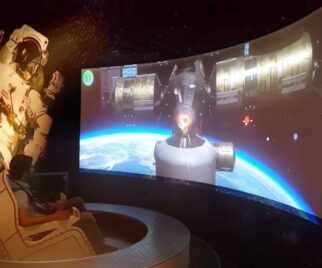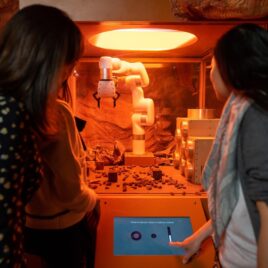In the dynamic landscape of cultural institutions, the power of global networks is undeniable. International networks for museums serve as conduits for collaboration, knowledge exchange, and the collective advancement of museums, science centers, children’s museums, theme parks and family entertainment centers worldwide. Let’s explore the expanded tapestry of global networks, weaving together a diverse array of institutions.
Museums, Science Centers, Theme Parks, FECs and Beyond

International Council of Museums (ICOM)
One of the outstanding international organizations for museums is International Council of Museums (ICOM). ICOM is a non-governmental organisation dedicated to museums, maintaining formal relations with UNESCO and having a consultative status with the United Nations Economic and Social Council. Founded in 1946, ICOM also partners with entities such as the World Intellectual Property Organization, Interpol, and the World Customs Organization in order to carry out its international public service missions, which include fighting illicit traffic in cultural goods and promoting risk management and emergency preparedness to protect world cultural heritage in the event of natural or man-made disasters. Members of the ICOM get the ICOM membership card, which provides free entry, or entry at a reduced rate, to many museums all over the world.

American Alliance of Museums (AAM)
The American Alliance of Museums (AAM), formerly the American Association of Museums, is a non-profit association whose goal is to bring museums together. Founded in 1906, the organization advocates for museums and provides “museum professionals with the resources, knowledge, inspiration, and connections they need to move the field forward.
- AAM represents the scope of museums, professionals, and nonpaid staff who work for and with museums. AAM represents more than 25,000 individual museum professionals and volunteers, 4,000 institutions, and 150 corporate members. Individual members include directors, curators, registrars, educators, exhibit designers, public relations officers, interactive exhibit fabricators, development officers, security managers, trustees, and volunteers.
- Museums represented by the members include art, history, science, military, maritime, and youth museums, as well as public aquariums, zoos, botanical gardens, arboretums, historic sites, and science and technology centers.
- At the 2014 American Alliance of Museums conference, the Institute of Museum and Library Servicesannounced there are now at least 35,000 museums in the US.
European Museum Forum (EMF)
- Another international network for museums is The European Museum Forum. The organization is under the Council of Europe. It is an independent, non-profit-making charity, registered in the United Kingdom and founded in 1977.
- The European Museum Forum organizes the annual European Museum of the Year Award (EMYA), also established in 1977. EMYA is awarded to existing museums that have undergone modernization or expansion and newly opened museums, during the previous three years.
Science Centers and Technology Networks:
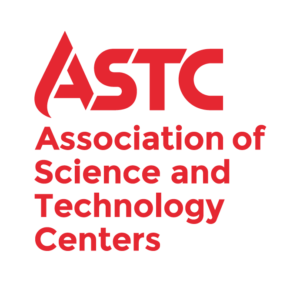
Association of Science-Technology Centers (ASTC)
- The Association of Science and Technology Centers (ASTC) is a non-profit, global organization based in Washington, D.C., in the United States, that provides professional support for science centers, museums, and related institutions. ASTC’s goal is to increase awareness of the contributions its members make to their communities and the field of informal STEM learning.
- Founded in 1973, ASTC now represents nearly 700 members in almost 50 countries, including not only science centers and museums, but also nature centers, aquariums, planetariums, zoos, botanical gardens, and natural history and children’s museums, as well as companies, consultants, and other organizations that share an interest in informal science education.
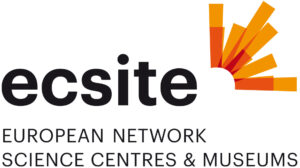
European Network of Science Centers and Museums (ECSITE)
- The European Network of Science Centres and Museums (ECSITE), is a not-for-profit organisation initiated in 1989.
- In 1991, it was formed under Belgian jurisdiction to facilitate communication and cooperation among Science Centres and Museums in Europe.
- ECSITE is linking science engagement professionals of over 400 institutions in 50 countries for projects, activities and to facilitates the exchange of ideas and best practice on current science issues.
- While many countries have national networks consistent of science centres, international networks like Ecsite, provide through their annual network conference science centre personnel to gather, share expertise, and discuss key issues.
Science Engagement Networks in Europe
- Austria: Science Center Netzwerk
- Czech Republic: Czech Association of Science Centres
- Denmark, Estonia, Finland, Iceland, Latvia, Lithuania, Norway, Sweden: Nordisk Science Center Forbund
- France: Association des Musées et Centres pour le Développement de la Culture Scientifique, Technique et Industrielle (AMCSTI)
- Germany: MINTAktiv
- Italy: Assoziazione Nazionale Musei Scientifici (ANMS)
- Latvia: Latvian association of science centers (LZCA)
- Luxembourg: Science and Society Unit at Fonds National de la Recherche
- Malta: Malta Council for Science and Technology – Science Popularization Unit
- Norway: Norwegian science centre association
- Netherlands: Dutch network of science museums and science centres (VSC)
- Poland: SPiN
- Portugal: Ciência Viva and Rede SciComPt
- Serbia: Centre for the promotion of science
- Spain: Red de Museos de Ciencia
- Sweden: Svenska Science Centers
- United Kingdom: UK Association for Science and Discovery Centres (ASDC)
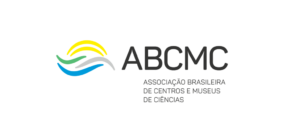
Associação Brasileira de Centros e Museus de Ciência (ABCMC)
ABCMC – Brazilian Association of Science Centers and Museums, founded on July 15, 1999, was created to unite ideas, share experiences, projects and enable a great exchange of resources and information between science centers and museums, professionals and various institutions that work with the popularization of science. We believe that identifying, intervening and critically understanding the possibilities and limits of scientific knowledge in our history are part of building citizenship.

Asia Pacific Network of Science and Technology Centers (ASPAC)
- The Asia Pacific Network of Science & Technology Centres (ASPAC), is a not-for-profit association initiated in 1997.
- It was formed to facilitate communication and cooperation among Science Centres and Museums and other organisations that use interactive approaches for learning and public understanding of science and technology in the Asia-Pacific The network hosts annual conferences where members exchange the latest updates on science exhibitions, educational advancements, and upcoming events.
- ASPAC has over 50 members from 20 countries (2022). Members include different forms of organisations, like science centres, science museums, children’s museums, exhibit design and fabrication firms.
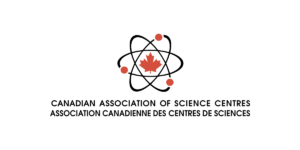
Canadian Association of Science Centres (CASC)
The Canadian Association of Science Centres (CASC) is a network of trusted organizations that represent a critical component of the science, technology, and innovation landscape in Canada.
With an annual audience of over 10 million people, CASC is the biggest membership-based network of scientific engagement organizations in Canada. More than 70 members are dedicated to a thriving science and innovation culture in Canada, and they all come together under our umbrella.
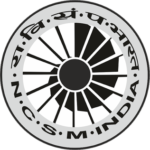
National Council of Science Museums (NCSM)
National Council of Science Museums (NCSM) is an autonomous scientific organization functioning under the Ministry of Culture, Government of India for science communication through its network of science museums or science centres spread across India. It is the largest chain of science centers/museums under a single administrative umbrella in the world. There are 24 own science centers or museums and one R & D laboratory and training centre. The NCSM has been built to co-ordinate all informal science communication activities in the museum space in the country.

Network for the Popularization of Science and Technology in Latin America and the Caribbean (Red Pop)
The Network for the Popularization of Science and Technology in Latin America and the Caribbean, known as RedPOP, is an interactive network that brings together groups, programs and centers for the popularization of science and technology (S&T).
It operates through regional cooperation mechanisms that favor the exchange, training and use of resources among its members.
RedPOP was created in November 1990, in Rio de Janeiro, at the request of UNESCO’s Science, Technology and Society Program.

South African Association of Science and Technology Centers (SAASTEC)
SAASTEC is a Non-Profit Organization and umbrella body for Science Centres, Museums, independent organizations, public organizations, and volunteers in South Africa.
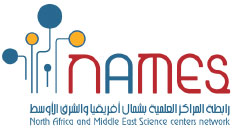
The North Africa and Middle East Science Centers Network (NAMES)
The North Africa and Middle East Science centers network (NAMES) was launched on 30 January 2006 during a meeting initiated and organized by the Bibliotheca Alexandrina (BA) Planetarium Science Center (PSC). The goal of NAMES is the popularization of science throughout the region by enhancing the public understanding and involvement in science and scientific culture among an increasingly diverse audience.
The purpose of creating NAMES is to foster cooperation between existing science centers and museums, as well as other science engagement entities, professionals, and enthusiasts, in North Africa and the Middle East with the aim of benefiting from all available resources and experiences within the region to further enhance the role of all member institutions and individuals.
Children's Museums Global Network:
InterActivity, The Association of Children’s Museums
The Association of Children’s Museums (ACM) is a Washington, D.C.–based organization that represents more than 300 children’s museums in 23 countries throughout the world. The association began in 1962 as the American Association of Youth Museums and grew out of the desire for children’s museums to meet as a separate group during the American Alliance of Museums‘ annual meeting. They remained an informal group, but their growth paralleled the growth of children’s museums worldwide.
Theme Parks and Family Entertainment Centers (FECs) Networks:
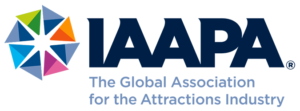
The International Association of Amusement Parks and Attractions (IAAPA)
The International Association of Amusement Parks and Attractions (IAAPA) represents over 6,000 amusement-industry members in more than 100 countries worldwide and operates several global attractions-industry trade shows. Its annual IAAPA Expo in Orlando, Florida, is recognized as the world’s largest attractions trade show in the number of attendees and exhibitors and providing members insight into current amusement trends, laws, operations and industry methodology. IAAPA also helps to promote guest-safety and ride-safety guidelines in conjunction with ASTM International and assists its members to uphold the highest amusement-industry safety and professional standards.
IAAPA represents a variety of location-based entertainment facilities, including amusement and theme parks, family entertainment centers, arcades, museums, water parks, aquariums, science centers, zoos, and resorts. It also represents interactive equipment manufacturers, distributors, operators, industry suppliers, and service providers.
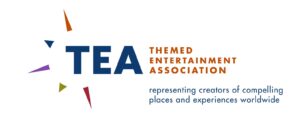
The Themed Entertainment Association (TEA)
The Themed Entertainment Association (TEA) is an international non-profit association that represents creators, developers, designers and producers of themed entertainment. It is also noted for its THEA Awards, which were founded in 1995 and are distributed annually in a range of themed entertainment categories.


